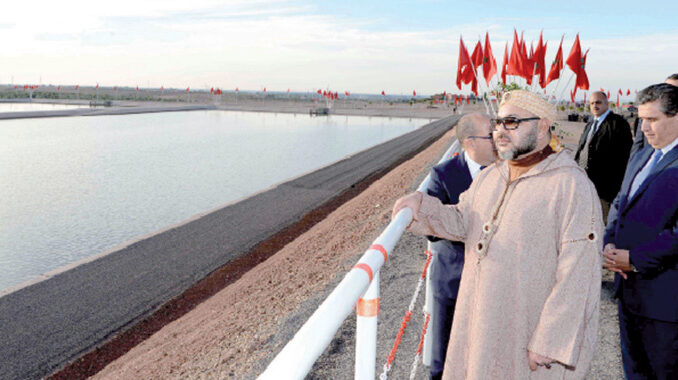
Since his accession to the throne, King Mohammed VI has paid a particular attention to water resources protection and conservation, making water security among the country’s national priorities to mitigate climate change impacts.
Building new dams, desalination plants and wastewater treatment facilities and improving water interconnections are among the major royal initiatives launched to ensure sustainability of water use, build climate resilience and strengthen integrated management to alleviate the macroeconomic impact of droughts and water scarcity in the North African Kingdom.
While low rainfall shocks have historically been a driver of macroeconomic volatility in Morocco, droughts tended to be followed by strong rebounds, and have not impeded robust, long-term agricultural GDP growth, according to a World Bank analysis.
Under the royal leadership, Morocco has developed an ambitious water policy that has had a positive impact on economic and social development, by increasing access to sustainable water resources and improving water management throughout the country.
Morocco has 152 large dams, with a total storage capacity of 19.9 billion m3, and has launched the construction of 20 new dams to reach a national storage capacity of 27.3 billion m3 by 2027 (as part of the National Programme for Drinking Water Supply and Irrigation).
Moroccan authorities are also building waterways to transfer water from the regions with sufficient water reserves to the cities suffering from water shortage. The country is also stepping up its desalination projects, notably in large cities such as Casablanca, besides taking measures to preserve ground water.
The royal initiatives have enabled farmers to irrigate their crops during drought seasons, contributing to the protection of agricultural production. Crop production in Morocco heavily relies on irrigation because of low productivity of rain-fed cropping. Although the share of irrigated crops in the total harvested area of Morocco is around 20 to 25 pc, nearly 65 pc of the monetary value of crops produced comes from irrigated crops.
This shows the challenges the country is facing as major reduction in water supply could harm the level and value of agricultural production in Morocco. Beside food security concerns, this could lead to more imports of grains such as wheat and barley.
King Mohammed VI has always encouraged scientific research focusing on drinking water saving technologies and innovative used of water in agriculture.
All these combined initiatives show the royal far-sighted approach and strategy to address water scarcity, while ensuring sustainable development and strengthening resilience to climate change.
